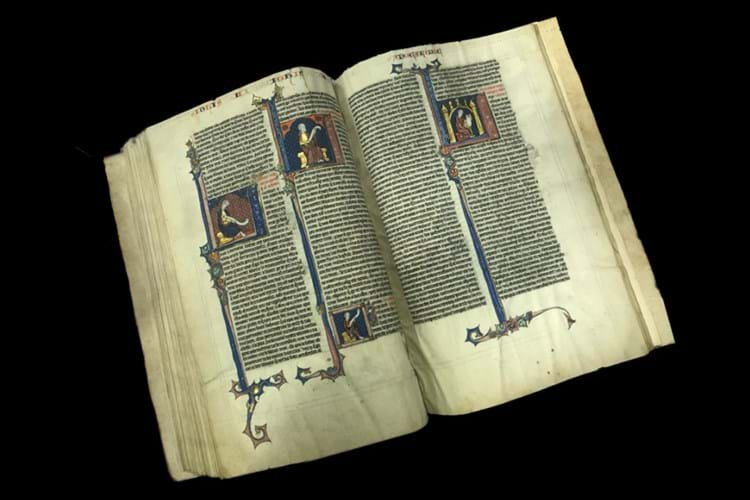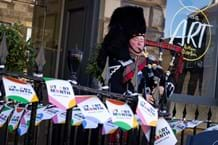
A New Testament bible in an Old French translation, with fine illuminated initials, attributable to the Cholet Master, containing the autograph inscription of Jean II (Jean le Bon), King of France.
The manuscript valued at £800,000 was previously unknown to scholars. It contains the signature of Jean II, who ruled France from 1350-64.
The UK government believe it is possible that the manuscript, which contains an early translation of the New Testament into French, was captured at the Battle of Poitiers in 1356 during the Hundred Years’ War. It has been in England ever since and in private ownership for at least 300 years.
It had been owned by members of the English royal family in the 14th and 15th centuries. Among them were the renowned medieval collector and son of King Henry IV, Humphrey, Duke of Gloucester (1390-1447), his elder brother Thomas, Duke of Clarence (1387-1421), and Edmund Beaufort, 2nd Duke of Somerset (1406-55).
Later in its life the bible was owned by antiquarian and lawyer Thomas Martin (1696/7-1771) and by the MP for Warwickshire, mathematician and astronomer Sir George Augustus William Shuckburgh-Evelyn, 6th Baronet (1751-1804). It then remained in this family, by descent.
War booty
Arts and heritage minister Lord Parkinson of Whitley Bay has blocked the export of the manuscript in the hope a UK institution will raise funds to buy it.
His decision follows the advice of the Reviewing Committee on the Export of Works of Art and Objects of Cultural Interest.
Committee member Caroline Shenton said: “This late-13th century New Testament is of extraordinary importance to our understanding of English medieval royal culture, politics, and diplomacy during the Hundred Years’ War. Although as the work of the Cholet Master its decoration makes it a very attractive object in its own right, it is its textual interest and staggering provenance which make it a national treasure.
“Excitingly, the particular French translation of the New Testament it contains appears to be unique and ripe for significant philological research.
“Furthermore, it was owned by Jean II ‘le Bon’, King of France (1350-64), whose signature – an exceedingly rare survival – is on its final page.
“It is highly likely that it was seized as war booty when he and his possessions were taken hostage at the Battle of Poitiers by the Black Prince in 1356, and it has been in England ever since.
Shenton added that a recent discovery in the manuscript was made under ultra-violet light revealing several erased ownership inscriptions “indicating it subsequently passed through the hands of a number of English royal owners, grandsons of John of Gaunt (1340-99), including Humphrey, Duke of Gloucester”.
English medieval book collector
Duke Humphrey is widely regarded as the most important English medieval book collector, but only 47 of his original library of some 500 volumes are known to survive.
Shenton added: “I very much hope that an institution will come forward to save this jaw-dropping manuscript which still has so much to tell us about its story and the stories of those who owned it.”
The decision on the export licence application will be deferred for a period ending on February 7, 2024, and a recommended price of £800,000 is required.
Offers from public bodies for less than the recommended price through the private treaty sale arrangements may also be considered.





